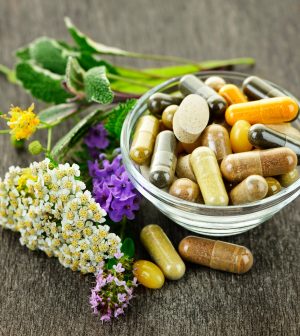Don't Miss
- The Long-Term Effects of Daily Turmeric Supplements on Liver Health
- Could Your Grocery Store Meat Be Causing Recurring UTIs?
- Are You Making This Expensive Thermostat Error This Winter?
- Recognizing the Signs of Hypothyroidism
- 10 Strategies to Overcome Insomnia
- Could Artificial Sweeteners Be Aging the Brain Faster?
- Techniques for Soothing Your Nervous System
- Does the Water in Your House Smell Funny? Here’s Why
- Can a Daily Dose of Apple Cider Vinegar Actually Aid Weight Loss?
- 6 Health Beverages That Can Actually Spike Your Blood Sugar
Herbal Remedies & You: 6 Tips to Safeguard Your Health
By LadyLively on January 18, 2023

Not all prescription drugs and dietary herbal supplements work well together.
It’s important to be aware of possible drug/supplement interactions that could be harmful, according to the U.S. National Center for Complementary and Integrative Health (NCCIH), a part of the National Institutes of Health.
The organization offered tips on six potential issues.
- The supplement St. John’s wort interacts with many types of drugs, according to the NCCIH. Most often, it speeds up the processes that would change the drug into an inactive substance, meaning a person taking a certain medication would have less of that drug in the body. It can also interact with certain types of antidepressants, causing harmful side effects.
- Concentrated garlic extracts can thin the blood. That’s similar to what aspirin does. It can be a problem during or after surgery.
- Another type of supplement, concentrated green tea, can interact with the decongestant pseudoephedrine.
- The herb goldenseal has a high herb-drug interaction risk with some medicines, according to recent research.
- Some medications have what’s known as a narrow therapeutic index, meaning that if the drug amount is too low or too high, it can be problematic. Some drugs with a narrow therapeutic index include digoxin, cyclosporine and warfarin. Patients taking herbal supplements such as Asian ginseng or St. John’s wort, along with a medicine with a narrow therapeutic index, should be closely monitored.
- Always tell your health care provider about the medicines and supplements you’re taking, the NCCIH advises. Bring a written list that includes how often you take them and the doses you take.
More information
The U.S. National Library of Medicine has more on drugs, herbs and supplements.
SOURCE: U.S. National Center for Complementary and Integrative Health, news release, Jan. 16, 2023
Source: HealthDay
Copyright © 2026 HealthDay. All rights reserved.










